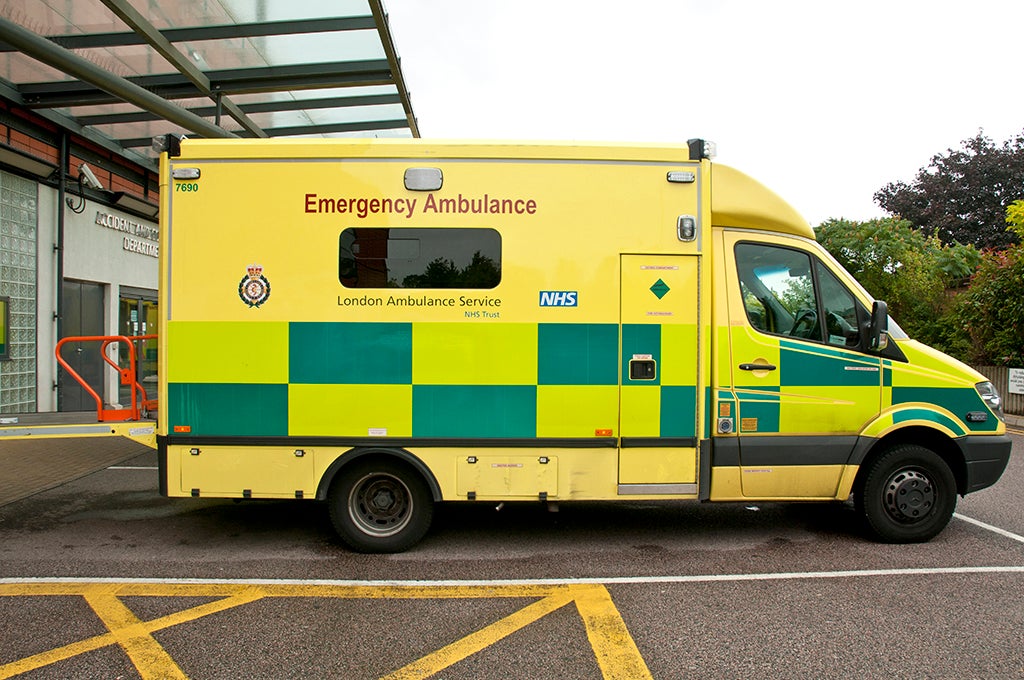People are still calling 999 for trivial problems
Trapped wind, nuisance seagulls, and uneven ice cream sprinkles are all examples of 999 calls in the last year

Your support helps us to tell the story
From reproductive rights to climate change to Big Tech, The Independent is on the ground when the story is developing. Whether it's investigating the financials of Elon Musk's pro-Trump PAC or producing our latest documentary, 'The A Word', which shines a light on the American women fighting for reproductive rights, we know how important it is to parse out the facts from the messaging.
At such a critical moment in US history, we need reporters on the ground. Your donation allows us to keep sending journalists to speak to both sides of the story.
The Independent is trusted by Americans across the entire political spectrum. And unlike many other quality news outlets, we choose not to lock Americans out of our reporting and analysis with paywalls. We believe quality journalism should be available to everyone, paid for by those who can afford it.
Your support makes all the difference.A shopper in pain at London’s Westfield Stratford City last week dialled 999. The London Ambulance Service sent a cycle responder to the shopping centre, who promptly diagnosed the problem. What was wrong? Was the shopper’s agony caused by the ever-earlier onset of the festive season?
No, it was something much more mundane, though no less sinister – trapped wind.
The LAS cycle team later tweeted: “#stratford attended a pt [patient] with trapped wind in the chemist. Pt referred back to pharmacist. #999 #usewisely”.
It might not be an emergency, but it is serious: too many people are dialling 999 for the wrong reasons. #usewisely indeed.
The problem is compounded by the fact that nobody knows how to deal with the issue. It has even led police forces to naming and shaming the worst offenders. Back in 2010, Devon and Cornwall police released a list of inappropriate calls they had received, the worst of which was a citizen asking if their Sarah Lee gateau would defrost in the freezer after a power outage.
Last year, a man in the West Midlands called 999 to complain that his driving instructor had arrived late. In June, a woman called 999 because the sprinkles on her ice cream were spread unevenly. And this week, a man in Nottinghamshire was banned from dialling 999 – “unless in an emergency”. The ruling was delivered after John Wainwright called the East Midland Ambulance Service 550 times in a single month. He was apparently attempting to use the service as a free sex line. Which is funny until you consider that it cost taxpayers nearly £30,000.
One of the ways that the emergency services have attempted to deal with the issue of non-emergency calls is NHS 111. This dedicated non-emergency health-related telephone service was introduced in 2013. It essentially replaced NHS Direct, the old non-emergency telephone service which closed in 2014 – despite then-Health Secretary Andrew Lansley’s claim in 2010 that there were no plans to get rid of it. But one in three adults has not heard of the NHS 111 helpline, or does not know what it does. And people are still calling 999 for non-emergency reasons. Why? Though we could dial 999 to quickly find out, let's take a moment to consider the problem.
One reason might be that those aware of it might be apprehensive to dial NHS 111. When it was launched in a selected number of regions in March 2013, the service was widely considered a failure. Things were so bad that the British Medical Association and the trade union UNISON wrote to Health Secretary Jeremy Hunt asking that the launch be postponed. But the service went ahead as planned and duly struggled to cope with demand. Waiting times were up to five hours, leading to even higher than usual figures for 999 calls.
Since then, the service has improved. But NHS Direct was staffed by nurses with extensive medical training. NHS 111, on the other hand, is not. The Guardian went so far as to compare the services by calling them.
So who takes the calls at NHS 111? South Central Ambulance Service in Bicester, which covers a resident population of approximately four million people, is currently recruiting call handlers for their NHS 111 service. The job requires 'effective communication and listening skills, good typing skills and someone who works well under pressure,' and 'experience of working with the public is helpful.'
Now that doesn’t mean that NHS 111 call handlers are incapable of providing a good service. But when Jeremy Hunt says that NHS 111 operators will be monitoring their calls for possible Ebola sufferers, it doesn’t exactly inspire confidence.
Last week it was reported that more than two thirds of 999 calls made to police in Shropshire over the past year were not emergencies - including an example where a man complained that his wife wouldn't give him the remote control.
So although it’s obvious to most that we shouldn’t waste the emergency services’ time with trivial matters, when should you call 999? The LAS cycle team offered some useful advice after trapped wind-gate, tweeting: “Is it an #emergency? Do you need to phone #999? If not consider other options as we are already very busy #111 #GP #pharmacy #NHSChoices”. And they even provide advice for emergency calls. If someone is seriously ill or injured, and their life is at risk, you should call 999 immediately. If not, consider other options. The same goes for reporting a crime. According to the Metropolitan Police, if a crime is currently taking place and you are in immediate danger, dial 999. If it’s not an emergency, dial 101.
So this holiday season, don’t be afraid to tell someone if you have trapped wind. Just don’t dial 999 to do so.
Join our commenting forum
Join thought-provoking conversations, follow other Independent readers and see their replies
Comments